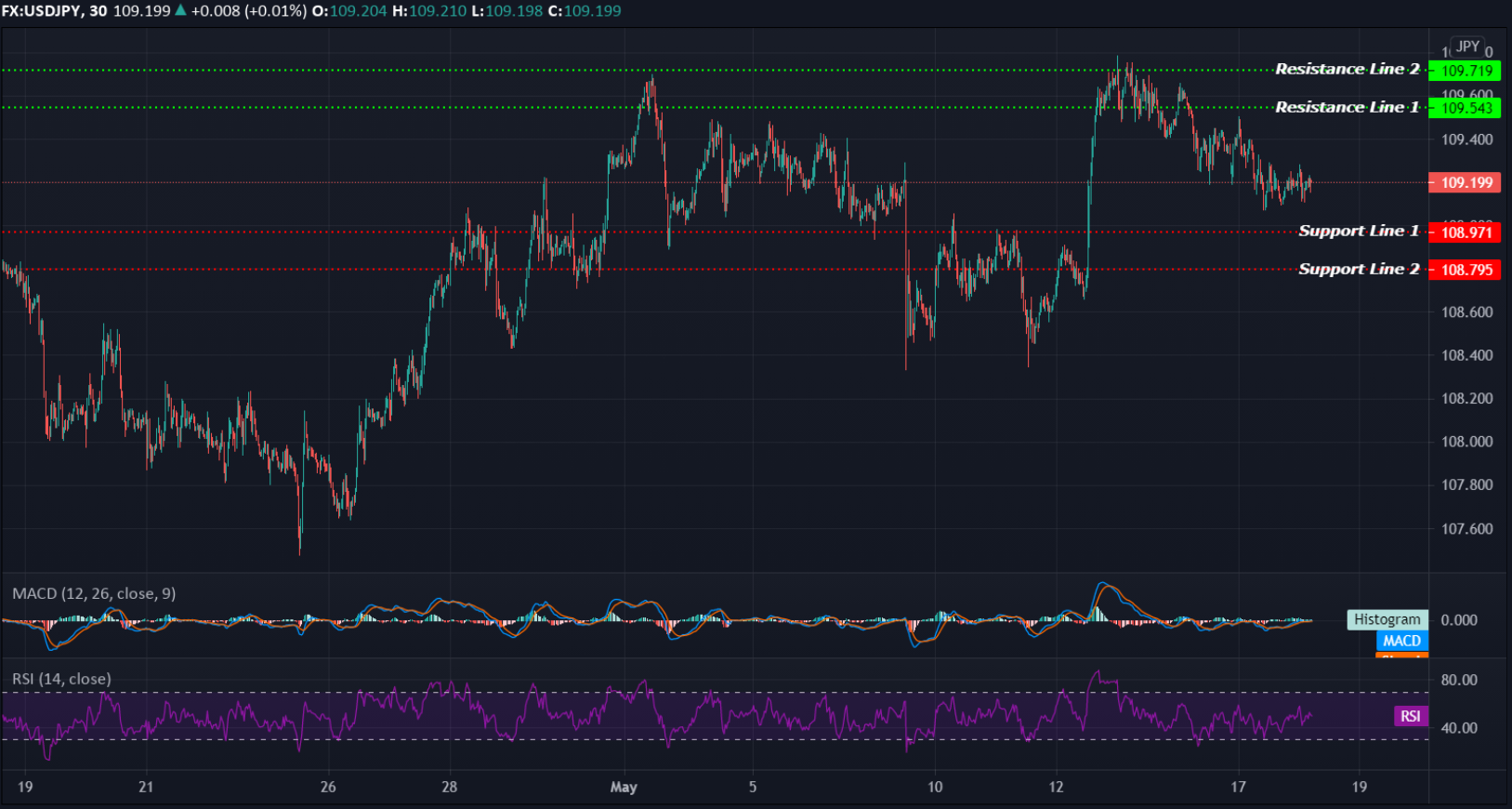EQUITIES
Shares in Asia-Pacific were higher on Tuesday trade. The Japan’s Nikkei 225 led the gains, rising more that 2%. The mainland Chinese stocks were also higher, with the Shanghai composite up about 0.08% while the Hong Kong’s Hang Seng Index rose 1.25%. Elsewhere, the South Korea’s KOSPI advanced 0.99%, the Australia’s S&P/ASX 200 edged 0.74% higher, the Singapore’s FTSE Straits Times Index added 1.45%, and the India’s S&P BSE Sensex index advanced 0.90%.
Overnight on Wall Street, the Dow Jones Industrial Average fell 0.16%, to 34,327.79, while the tech-heavy Nasdaq Composite dropped 50.93 points, or 0.38%, to 13,379.05 and the S&P 500 lost 0.25%, at 4,163.43. The pan-European STOXX 600 index lost 0.05%.
OIL
Oil prices were higher in the morning of Asia trading hours, as optimism over the reopenings of the U.S. and European economies outweighed fears of slower fuel demand in Asia as the coronavirus makes a comeback in parts of Asia.
The Brent crude futures traded at $69.71 per barrel, and U.S. crude futures traded at $66.52 per barrel.
Overnight, the Brent closed at $69.46 while WTI ended at $66.27 per barrel.
CURRENCIES
U.S. Treasury yields traded to 1.647%, while the dollar index was down 0.11%, to 90.100.
The dollar teetered near multi-month lows against European currencies as Treasury yields stalled in the wake of Kaplan's comments that the U.S. will not hike interest rates anytime soon.
Since hitting a record just under $65,000 in mid-April, bitcoin's price has fallen 35%. Bitcoin was down close to a 3-month at $44,073, driven by tweets from Tesla Inc chief Elon Musk. The crypto hit record outflows last week, totalled $98 million, or 0.2% of total assets under management.
Rival digital currency ether edged up to $3,390, steading from a 2-week low reached on Monday. It has gained about 355% in 2021.
GOLD
Gold prices on Tuesday rose to their highest in more than three months as a weaker U.S. dollar and growing inflationary pressure lifted bullion's appeal.
The spot gold rose to trade at $1,867.70 an ounce and added to $1,868.00 per ounce for gold futures. Previously closed at $1,866.40 and $1,867.60, respectively.
ECONOMIC OUTLOOK
Asian shares rose early on Tuesday, shrugging off worries about an increase in regional coronavirus infections and a subdued session on Wall Street, as tech shares weighed down by inflation jitters and potential for tighter monetary policy.
Dallas Federal Reserve President Robert Kaplan on Monday reiterated his view that he does not expect interest rates to rise until next year, helping to reassure markets that the Fed will not tighten early. Markets are now waiting on Wednesday's release of the minutes from the Fed’s policy meeting last month, which could shed more light on the policymakers' outlook on inflation and an economic rebound.
Japan’s economy shrank at an annualized rate of 5.1% in January to March.
Earnings this week will be scrutinized for clues on whether rising prices had any impact on consumer demand and if retailers can sustain their strong earnings momentum. Among U.S. corporate earnings due today including Walmart, Home Depot, Macy's (M) Baidu & Take-Two Interactive.
Some key events to watch today including U.S. housing starts & API oil market report, and Eurozone economy growth, employment change & trade balance.
To date, number of confirmed worldwide cases for COVID-19 pandemic has surpassed 163.41 million, recording more than 3.38 million fatality globally.
TECHNICAL OUTLOOK
[USDJPY]
Important Levels to Watch for Today:
- Resistance line of 109.543 and 109.719.
- Support line of 108.971 and 108.795.
Commentary/ Reason:
The dollar held steady at 109.199 yen. The currency pair has been locked in a narrow range in recent trading.
While a weakened and bearish U.S. dollar is still very much the consensus, concerns about COVID-19 cases continue to weigh on Asian foreign exchange trading.
The yen were also weighted after data showed Japan’s economy contracted more than expected as the slow vaccine rollout and a resurgence in COVID-19 infections hit consumption.
In addition, strength in the Japanese equity markets on Tuesday also thinned some safe-haven demand for the yen.
The pair will likely continue to oscillate in a narrower range and the longer-term bullish bias will likely continue perhaps at a more moderate pace. Momentum indicators are bullish, with MACD testing the zero line.














